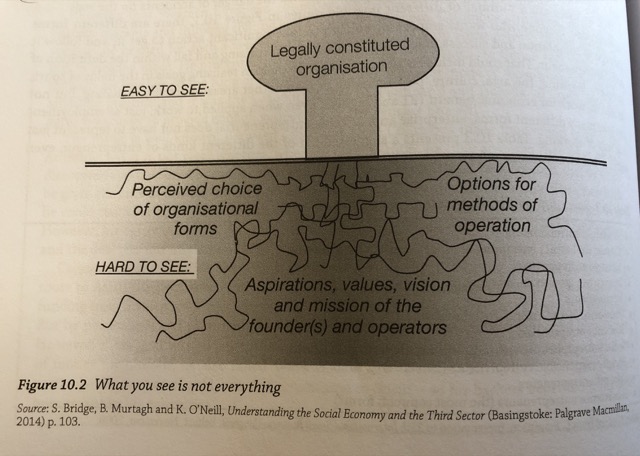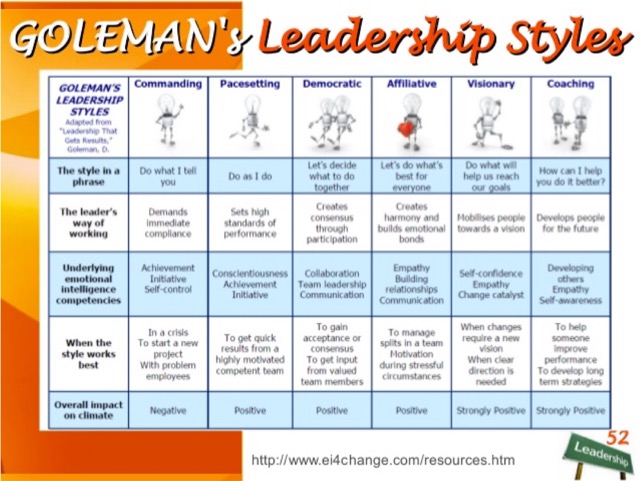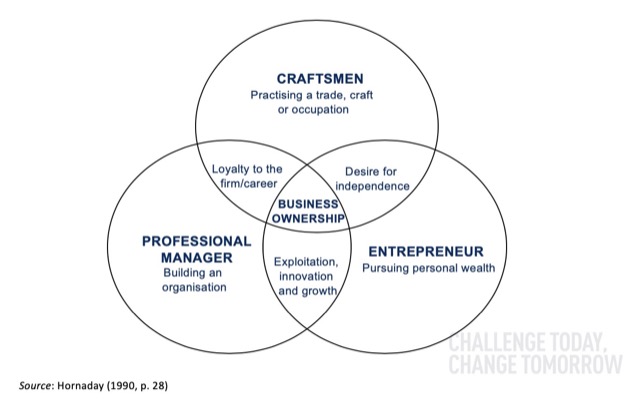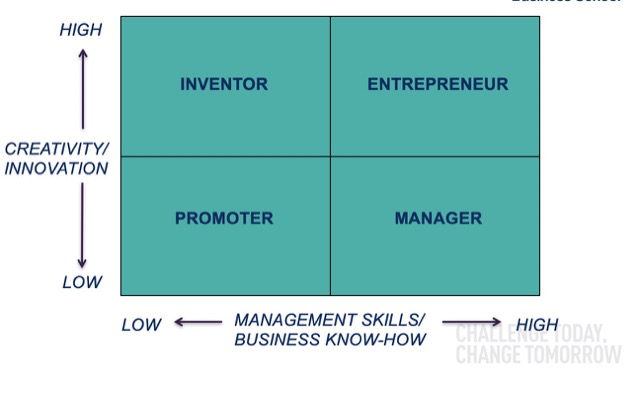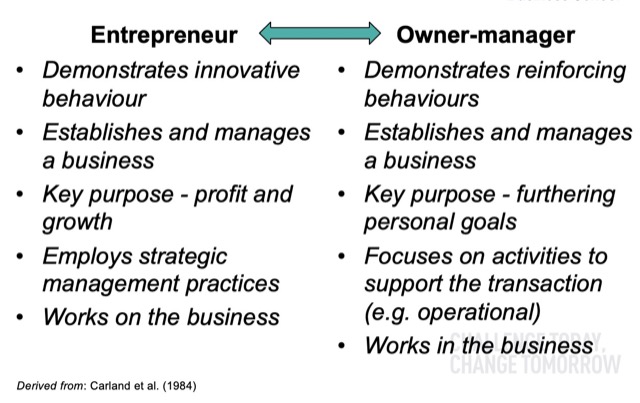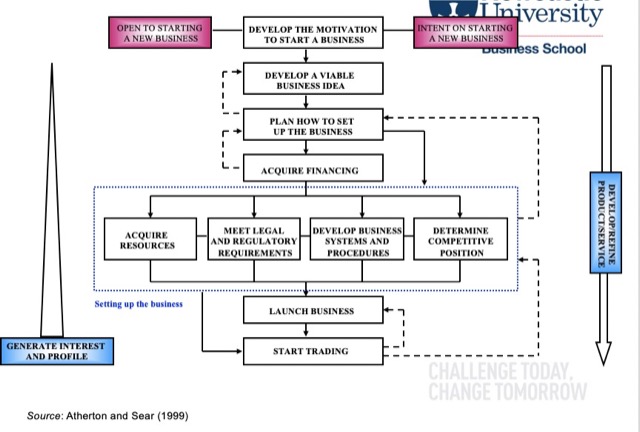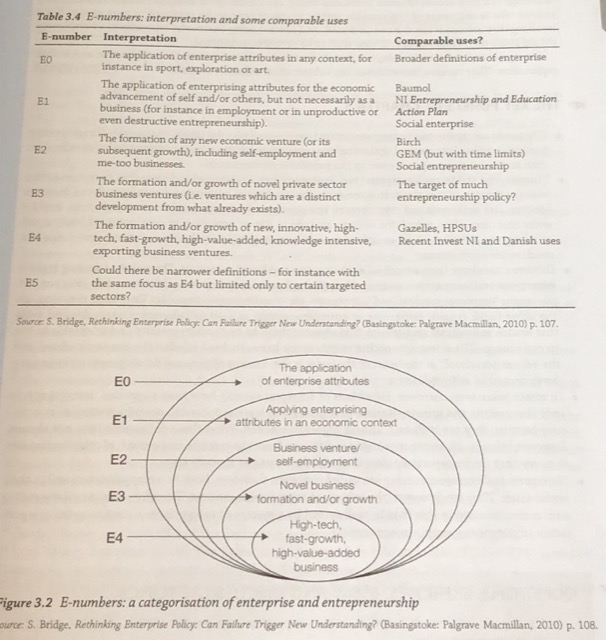章節連結
- 課程簡介
- 課程內容
- Lecture 1 – What is Enterprise & Entrepreneurship?
- Lecture 2 – Enterprise v.s. Entrepreneurial Management
- Lecture 3 – The Enterprising Individual
- Lecture 4 – The Enterprising Individual (II)
- Lecture 5 – The Enterprising Individual (III)
- Lecture 6
- Lecture 7 & 8
- Lecture 9
- Understanding Enterprise, Entrepreneurship and Small Business
第二學期部分的 Enterprise and Entrepreneurial Management: A Critical Exploration 逐堂筆記和研讀記錄。講述企業精神和企業管理,作業有 2500 字的 Essay & 1000字的 Mind Map with Personal Reflective Statement。
課程簡介
名稱:Enterprise and Entrepreneurial Management: A Critical Exploration
代碼:NBS8139, Newcastle University Business School
修習時間:Term 2, 2018~2019
講師:Leigh Sear
主要參考書:
1.Blackburn, R., de Clercq, D. and Heinonen, J. (2018) The SAGE Handbook of Small Business and Entrepreneurship, Sage, London
2.Bridge, S. and O’Neil, K. (2017) Understanding Enterprise, Entrepreneurship and Small Business, Palgrave MacMillan, London (5th Edition)
資料來源:上述書籍、課堂投影片、Wikipedia、自身整理
課程內容
Lecture 1 – What is Enterprise & Entrepreneurship?
不同的觀點來思考:Individual 1960’s; organization 1980’s; task government/context 2000’s; culture/society 1970~1980’s
Enterprise encompasses both:
1.Criminal and corporate entrepreneurs, owner-managers, micro-business, self-employed – in all their contexts
2.Better to encompass all activity, all perspectives
Entrepreneurship 可以包含 Enterprise, innovation, change management and strategic management
reality is contested and complex
現今情況:大者恆大,但工作碎片化,企業合作的工作型態被身兼多職能的工作者所取代,這些工作者主動、積極且具備企業思維。
Lecture 2 – Enterprise v.s. Entrepreneurial Management
具有怎樣特質的人,會被歸類成 enterprise or entrepreneurial 的管理者呢?
[進行分組討論階段]
Entrepreneurship:指擔負著對土地、資本、勞動等生產要素進行有效組織和管理、富有冒險和創新精神的高級管理人才,這就是創業家精神。
Enterprise:可以分為兩部分:
經營性 – 追求營利,根據投入產出進行經濟核算,獲得超出投入的資金和財物的盈餘
人和要素、資源的結合,追求長期和維繫股東及相對關係人的獲利
如:Owner-manager, a small business, enterprise
誰需具備這樣的思維?
1.任何從事經濟活動的人(Based on the topics – finance, marketing, social groups; Unit of analytics – individual, firm, organization; Audience – students, policymakers, firms),且結合其他領域科學。
2.思維方式 – Positivism – general – universal truth v.s. Interpretivism – specific – local truths
US/Europe 追求的差異
US approach
1. Tends to be dominant and discipline-defining
2. Bias towards positivism and methodological conservativism
3. Focus on opportunity recognition, a new venture and business performance
Europe approach
More plural and eclectic theoretically and methodologically
More policy-oriented
More emphasis on small firm than entrepreneurship
Lecture 3 – The Enterprising Individual
The Role of the Individual – 個人在企業中的角色
企業家就像個人在追逐高風險的挑戰,進而獲得利益、視情況分配資源
Wickham(2006):entrepreneur 可由以下來定義:
Economic:Great Person, personality types…
Personal Characteristics and traits:Risk Taking, maximising investor returns…
Undertook tasks:辨別市場機會、分配資源…等
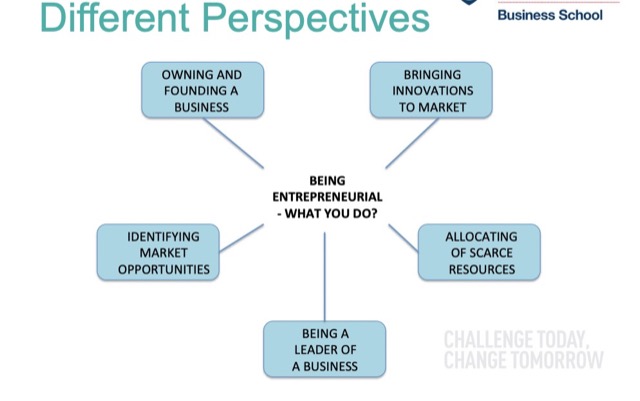
Lecture 4 – The Enterprising Individual (II)
試著發展你的 Entrepreneurial Personality,並善用心智圖來闡釋你的想法。
Why?
1. To understand yourself more deeply
2. To develop future careers with characteristics
3. To evaluate your advantages/disadvantages
4. Personal value
P.S. Stubborn 可以是正面的特徵,有些時候領導人對於正確的長遠理想要有所堅持。
個人的領袖特質(Entrepreneur of the Individual)
1. 勇於冒險、承擔高風險的事物 – Richard Cantillon (Middle 18th Century)
2. 在不確定的情況下,分配資源 (19世紀)
目前對於企業家特質是天生的 or 可由生活經驗獲得仍有爭論
Entrepreneurial mindset – effectiveness – competencies – awareness
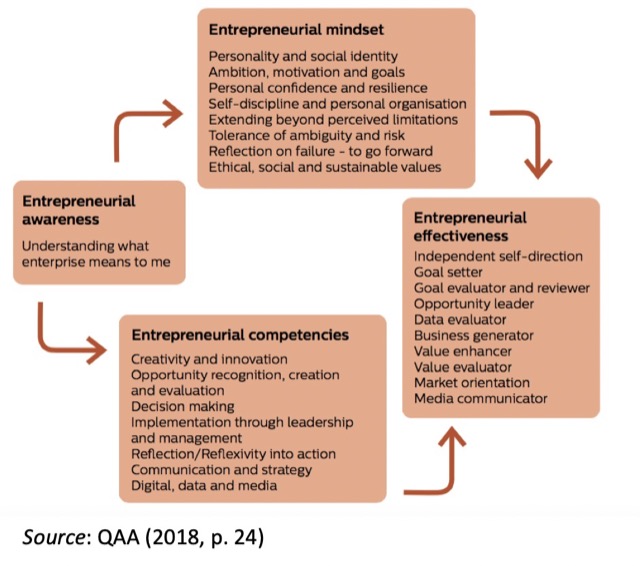
Influence 影響力的展現/來由:Migration/Family/Case Study/Professor/Friends/Necessity(必須要做)/Media/Financial Situation(做生意方能脫離現況)
從經濟的角度來看:
Four key perspectives (Kirby, 2003):
1. Knight – entrepreneurship as a function within a general system of equilibrium – Risk, Uncertainty and Profit – focus on the interests
追求利潤和獎勵,因為這是可以量化的數據且面對未知的方式
2. Kirzner – ‘noticing’ during periods of disequilibrium – 找到 nitche,不平衡點,並切入它 – 對機會保持警覺、運用套利(arbitage)操作
3. Schumpeter – creative destruction,破壞式創新 – 破壞既有模式,時限間隔越來越短(the business cycle is getting shorter)
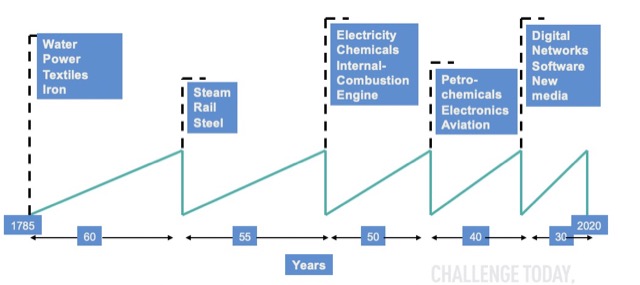
存在創業機會 existence of entrepreneurial opportunities
什麼是 Uncertainty?
Uncertainty is defined in terms of ‘the fact of ignorance and necessity of acting upon opinion rather than knowledge’
Lecture 5 – The Enterprising Individual (III)
企業家精神究竟是天生的?還是後天形成的?
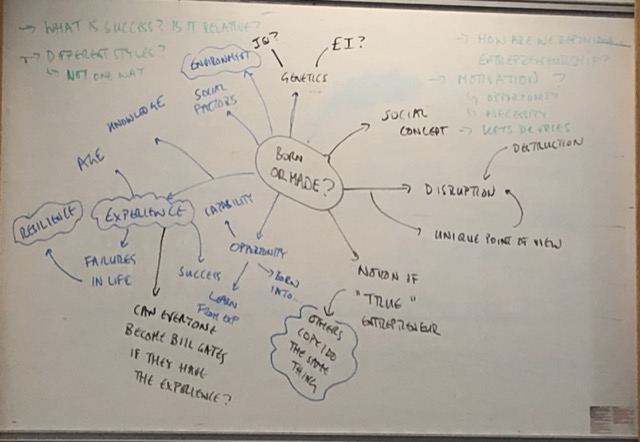
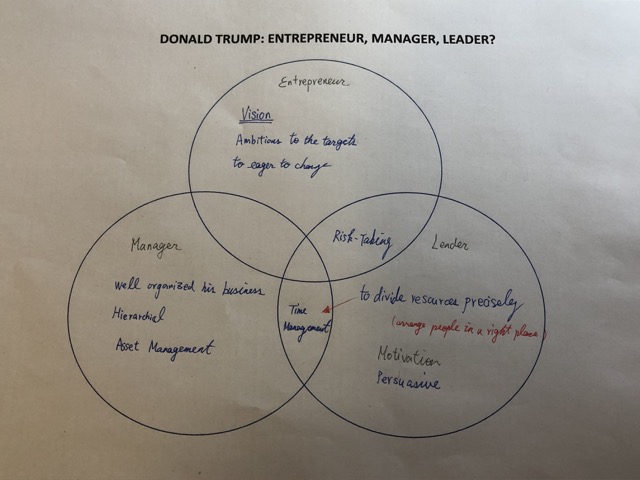
Authoritative/Autocratic, Democratic/Participative, Delegative/Laissez-faire (Kurt Lewin, 1939)
權威/專制,民主/參與,代表/自由放任
Management Styles
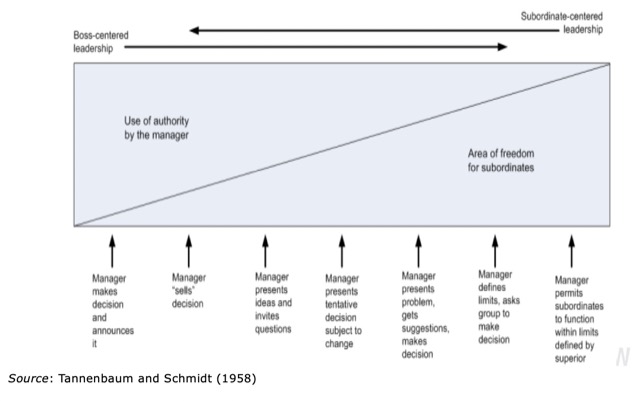
分類方法二:(Shell, 2001)
分類方法三:(Cartland et al., 1984)
Lecture 6
分析自身的 Opportunity, Resources and Team,尋求共識和交集,來找出適當的 Business Plan。
A model of the entrepreneurial process – Innovation, Trigger Event, Implementation, Growth
要有遠見並給予行動,這是創造和發展具有企業家精神的組織的必備條件。Fore sighting, insight, action。因此,to think about some megatrends.
To recognise the opportunity and trend – A ‘megatrend’ is a large, social, economic, political, environmental or technological change that is slow to form.
1. Demographic change – e.g. ageing of the population
2. Socio-cultural change – e.g. work/life priorities, family relationships, religion
3. Shift in global economic powers – e.g. ownership of businesses
4. Climate change and resource scarcity – e.g. changes in climate and weather patterns
5. Technological change – e.g. use of cloud-based computing and virtual reality
6. Political and governance shifts – e.g. expectations around legislation and regulation of business
Lecture 7 & 8
Enterprise (進取) 精神就像是一場夢或是冒險。可分為四個階段(Sear, 2011):
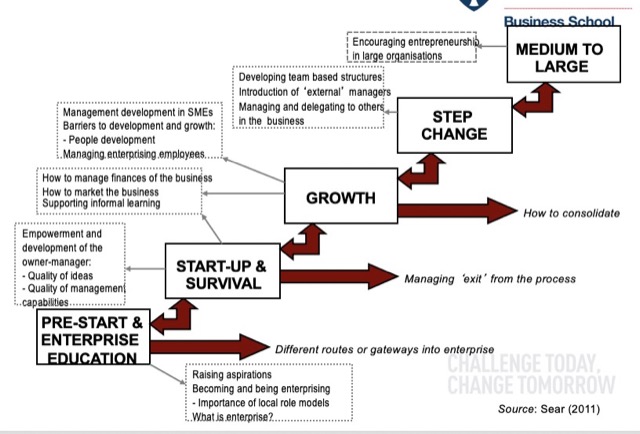
Entrepreneurial Process – (like a venture)
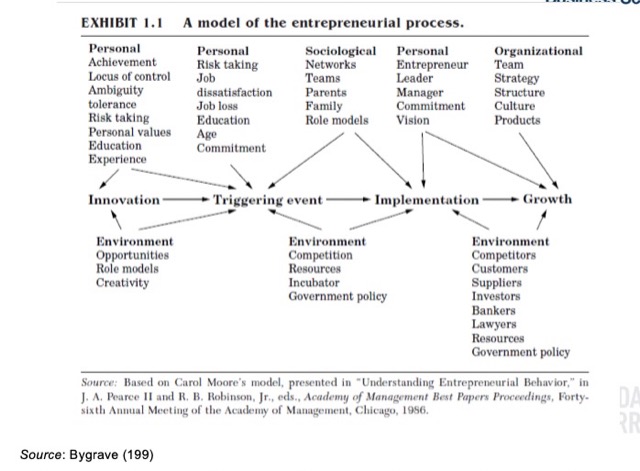
從學術的角度,這過程伴隨著障礙與挑戰,不過是很自然且具有個人/組織特色的。
從政策的角度,它是經濟的動能、創造工作機會和財富、保留社群再造的機會、替社會留住挑戰現狀的精神。
不過,為什麼這樣的挑戰(Entrepreneurship)值得被留下?有著什麼樣的驅動力?
創造資源(工作)、對現狀改善、
Timmons(1998)認為:Business Plan 需要考量機會、團隊和資源,取三者的交集。其中需要各種特質,如:創造力、領導力、溝通交流、企圖心…等。
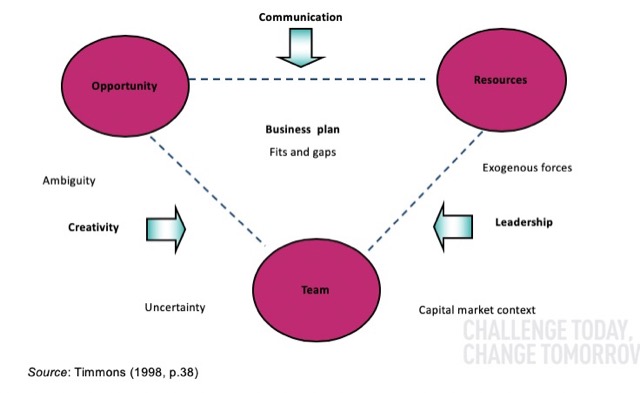
Gartner (1985)認為以上的特質,要充分的在個體、組織、過程和環境中互動
Deakins and Whittam (2000)認為這過程要有:點子生成、察覺機會、預先規劃、搶得先機並發展
Lecture 9
企業中的積極進取精神 – Strategy & its development,以下提出5種框架
1. DUBS (1995)
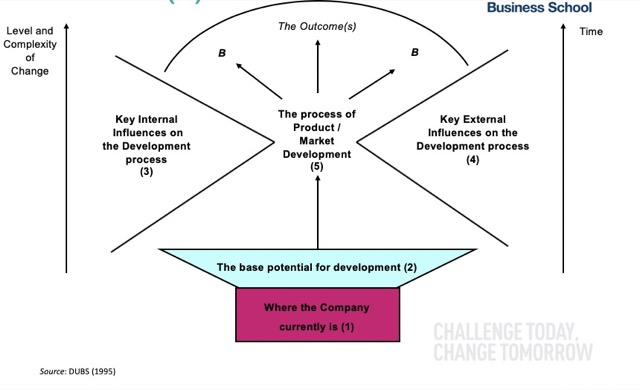
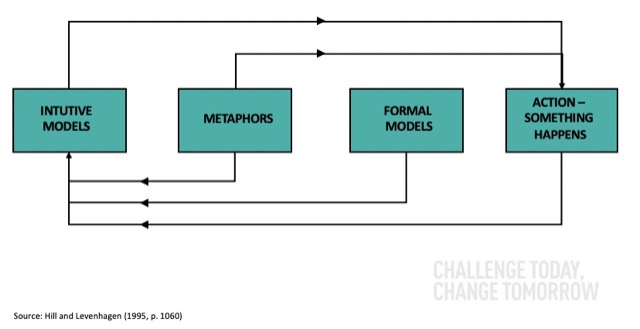
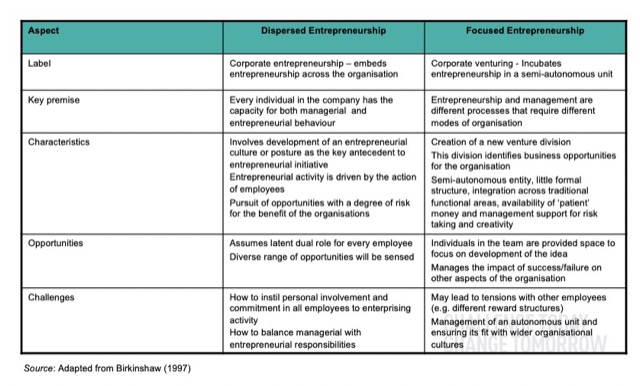
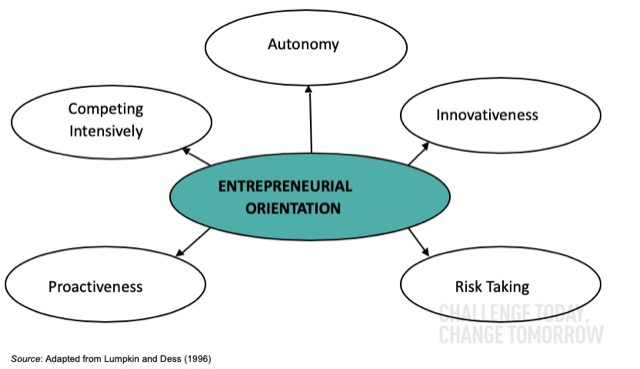
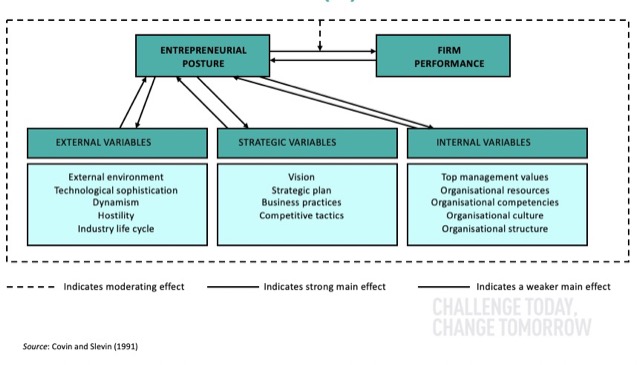
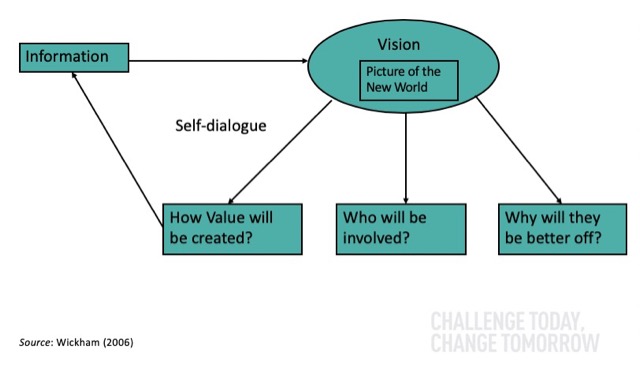
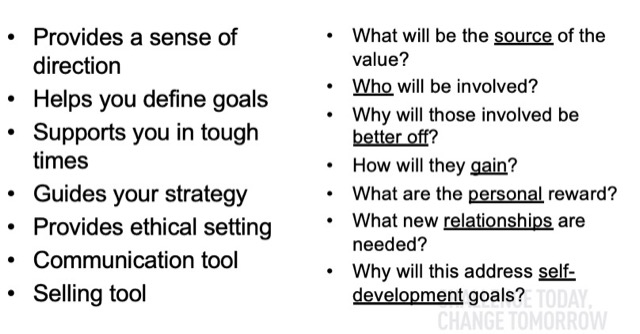
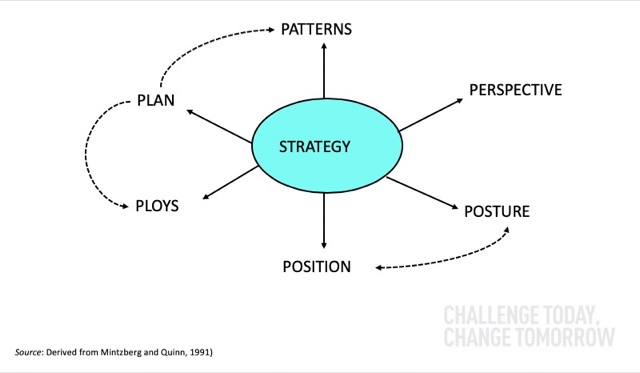
Understanding Enterprise, Entrepreneurship and Small Business
Ch1 & Ch2 – 進取(Enterprise)與創業精神(Entrepreneurship)的歷史
進取精神(Enterprise)是商業行為的原動力,而身為創業家(Entrepreneur)則擔當社會的經濟重擔,具有創業精神(Entrepreneurship)。創業家雖擁有組織能力,但隨著社會環境變遷,大企業數量越發增加,中小企業SME的消逝成為了問題。英國政府對此表示重視,要保存這樣的「創業精神」使其重生有活力。不過中小企業的數量並不是重點,如何讓創業家特質長存在社會氛圍下才是重點。
Bolton (1971) 提出 Small Business 擔當專職生產者(Specific),讓市場具備多樣性且可以刺激產業發展(創業精神)。Birch (1980s) 提出 SMEs 佔整體公司數量的 90%,總和卻雇用了超過前500大企業的員工總數。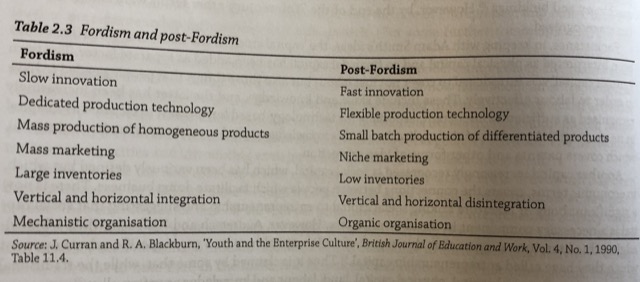
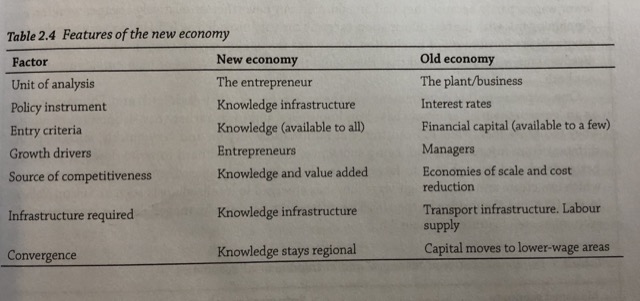
Ch3 – 進取與創業精神的意義
Enterprise:To go where no man has gone before. It is a new combination of products with positive, flexible and adaptable change rather than a problem.
Entrepreneurship:It can be earned with numerous dimensions. 像一層一層的洋蔥,每剝一層就會流淚。It tells you how to create business and carry “enterprise” out to the world.
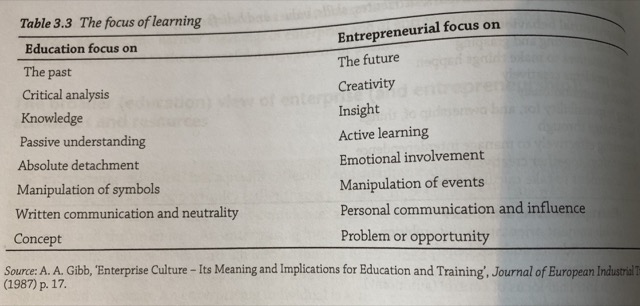
廣義的定義:在其行為、習慣和改變
由經濟的角度來看,兩者都代表著新創企業和成長。因為現今人們都須面對著環境的不確定性和頻繁的變化。

Ch9 – 重新定義 Entrepreneur & Entrepreneurship
The entrepreneur is heterogeneous, i.e. it has different categories including social, habitual, female or ethnic types.
Habitual type: 同步多個領域開始,並不專於其一
Female: 因父權(patriarchy)而特別,其角色擁有的 Social-economic value 角色不同、動機也不相同。因此,此類的創業家會有利於在家庭、社會關係上取得平衡。這跟社會氛圍有一定的關係,但有可能存在地域上的區別(如北歐地區)。
Entrepreneur 不必表現的像大企業(指人工員數大餘100),在關鍵決定上有本質的差異,考慮的面向也不同。
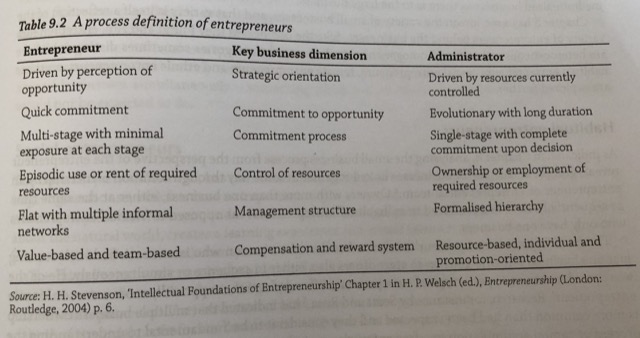
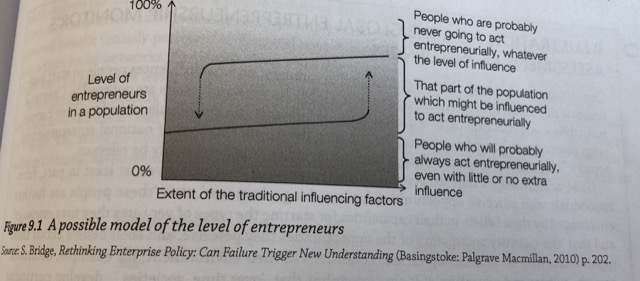
Ch10 – Enterprise and Life
政府想盡辦法刺激並鼓勵中小企業、微型企業,目的是保留社會中的一股探索與「冒險(venture)」精神。縱使中途一定會伴有風險,但會帶來更高的視野。
Enterprise is about people trying to find their own solutions, rather than hoping the solutions will eventually find them. Bridge et al. 認為冒險本身唯有在已經正式成立了組織、立足於社會中時才會被知曉。但其背後的很多因素如熱情、價值…等往往被忽視。
這情境如下圖所示:
